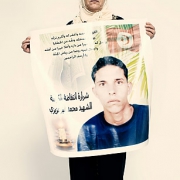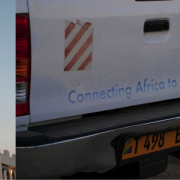Rwandan’s Tech Savvy President Talks ICT4D (Video)
Few world leaders are as savvy users of new media tools as Rwandan President Paul Kagame, who actively maintains a Twitter account and a YouTube channel. Because of how technologically engaged he is, Kagame was invited to answer a range of user-submitted questions as part of the Youtube Worldview Interview.
President Kagame fielded questions that touched on genocide, foreign aid, democratic elections, education, and job creation. But the main purpose of the interview was to explain to the world how a nation can restore political and economic stability and prevent genocide.
Kagame says technology stimulates economic activity and touts social media as a viable tool for governments to remain engaged with citizens. A fifth of the questions asked related to technology, and Kagame noted that had the infamous genocide occurred in an age where ICT were as ubiquitious as they are today, more positive voices would have been heard.
Transcriptions for three responses given by President Kagame (Transcription Credit: oAfrica)
What advantage do developing countries have when it comes to new technology? What potential do you see for mobile technology in improving the lives of Rwandans? (31:35-35:21)
Developing countries have an advantage because they can leapfrog. They don’t have to go through re-inventing the wheel, it has already been invented. We just go to the best – to the latest – that there is already. This is a very huge advantage. Again this is an advantages to those that see the opportunity. The fact that it is there is not enough. New technologies provide new opportunities. They support entrepreneurship, they support innovation, they support creativity. They constitute a business themselves. They present economic activities that people can benefit from. They serve as drives and tools that we can use to develop economic activities. For Rwanda, we are using not only these technologies but we can make them accessible to our people and make sure people are able to use them. And affordable. We build from there. Information technology is very critical. It informs our people. It gives them an enormous amount of information and ways, and therefore means, And they can also communicate. Once that exchange takes place it tells society to accelerate their development whether it is government or development or different aspirations for the country.
You personally use social networking websites like Twitter. Do you think modern day leaders & government officials should use these platforms as a means to reach young people or as a means to broadcast vital information? (40:55-43:20)
My experience with the use of the social media is that yes, it gives an opportunity to communicate with a very wide audience, even abroad. So it comes with a wealth of information and ideas. The whole value of connecting with the people and doing so it provides a platform to air your views, hear from other people’s views. It’s very instructive, indeed. I try and subscribe to making use of social media. I benefit, maybe other people will benefit too. It creates a healthy link with a wide, even global audience, not just a domestic area.
Considering today’s technology and access to it that everyone has, do you think had we had this kind of technology 17 years ago that what happened could have been prevented? (43:20-45:08)
I think, yes, this institution would have been much better if we had this 17 years ago. It would bring more awareness. It would be a process of liberalization for a good cause. It would be more positive than negative. Negative people abuse it, but I believe there would be more use for the better cause than for such negative ones. Some of the activities that took place were hidden from the eyes of the general public. Voices would have come out to say it is something else. There would have been more people challenging things that were happening. Certainly the matter would have been different.






































